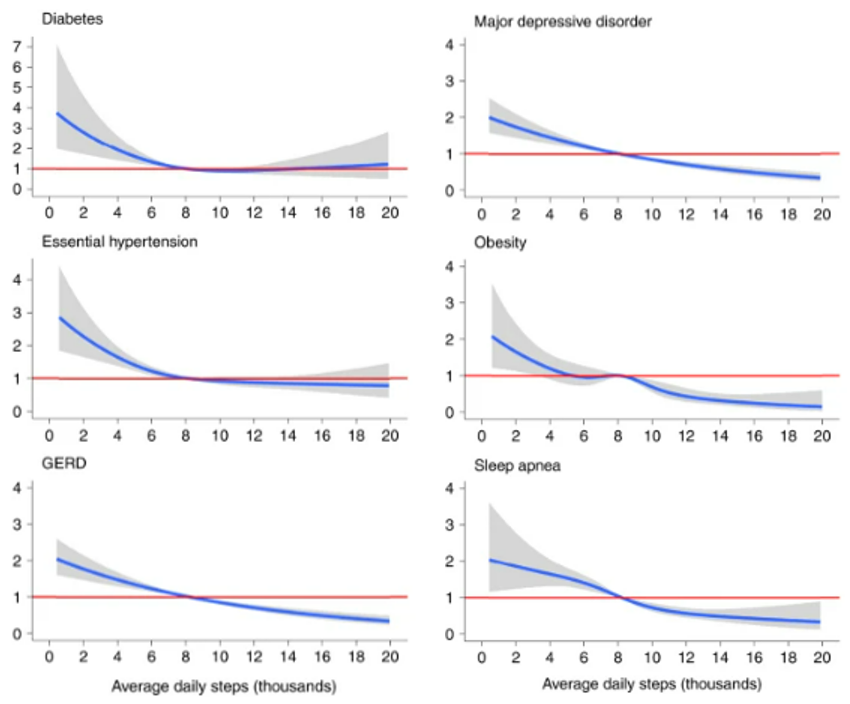A new paper examining the links between the average daily step count (as measured by Fitbit) and the health outcomes of ~6,000 people reinforces the idea that being more active is good for our health in many dimensions.
Steps per day negatively correlated with obesity, sleep apnea, gastroesophageal reflux disease, major depressive disorder, diabetes and hypertension.

One takeaway I’d have is that in general more is always better, at least up to the thresholds displayed on the chart. There’s nothing special about the (in?)famous 10k steps a day goal in many of these curves. So an increase in physical activity is likely worthwhile irrespective of whether you’re going from 2,000 to 3,000 steps, or 9.000 to 10,000.
That said, being observational, the study cannot truly prove that the increased steps is what caused the better health outcomes, although the authors do attempt to reduce the risk of reverse causation (i.e. good health leads to more steps) . Studies like these also cannot truly control for every possible confounder.
Nonetheless, whilst the conclusion isn’t exactly surprising, it’s nice to see a study that looked at a reasonably high number of people over a reasonably long time frame - the median step-monitoring period being 4 years - and made an effort to control for various external confounders.